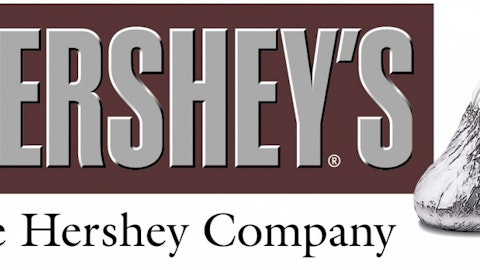Richemont has all but eschewed the idea, labeling Tiffany & Co. (NYSE:TIF) as not “high-end” enough to be coupled with brands like Cartier, Mont Blanc, and its luxury watchmakers. Another competitor, PPR (possibly renamed Kering), doesn’t seem like a natural fit to us either. PPR owns dominant brands like Gucci, Saint Laurent, Bottega Vanetta, and Boucheron, but we aren’t sure if Tiffany & Co. (NYSE:TIF) would fit in to a very European-centric brand portfolio.
We believe a much more natural fit would be Louis Vuitton Moet Hennessey. LVMH is the true juggernaut in the luxury space, and it has had no problems acquiring disparate brands ranging from Dior and Bulgari, to its merger with Moet in the mid 2000’s. While LVMH has a complex ownership structure and has also coveted Hermes in the past, we think LVMH could reduce overhead expenses at Tiffany & Co. (NYSE:TIF) with little difficulty. Tiffany & Co. (NYSE:TIF) also fits nicely into the discreet luxury category that is gaining steam in China—an area where LVMH’s products tend to be a bit more conspicuous.
We think any deal for the company would likely require a price tag upwards of $11 billion, which doesn’t leave tremendous upside from current levels. While an acquisition can often act as a strong catalyst for positive price movement, we consider it secondary to the firm looking undervalued on a fundamental basis, which Tiffany is not at this time. Therefore, we won’t be looking to add the name to the portfolio of our Best Ideas Newsletter.
Deckers Outdoor Corp (NASDAQ:DECK)
As the market for Uggs has matured, footwear maker Deckers Outdoor Corp (NASDAQ:DECK) faces a litany of issues on the cost front. Essentially, the company is dealing with rising input costs with decelerating sales growth—a recipe for disaster. What the company needs is supply-chain efficiency gains in order to boost gross margins, and an international distribution network to pursue global sales growth. The market agrees, and retail conglomerate VF Corp (NYSE:VFC) continues to be floated as the likely suitor.
However, VF Corp (NYSE:VFC) is run by a strong management team, and we do not think the company has to make an acquisition. In fact, the company recently posted record first quarter results, and Deckers Outdoor Corp (NASDAQ:DECK) could put downward pressure on gross margins. We think there’s a strong possibility that Deckers is no longer an independent company by year’s end, but we’d need to see the share price fall so likely buyers like VF Corp and private equity firms would be able to score a better deal.
Boston Beer Co Inc (NYSE:SAM)
With North American lager volumes stagnating, consumers (and brewers) are constantly in search for new, premium craft beers. Boston Beer Co Inc (NYSE:SAM), the parent of Sam Adams, isn’t the underdog it once was, but compared to global giants like SABMiller plc (LON:SAB) and Anheuser-Busch InBev NV (ADR) (NYSE:BUD), Boston Beer Co Inc (NYSE:SAM) is a small blip on the radar. Still, we know ABI or Miller would love to get its hands on the powerful brand and its sales of potentially more than $600 million this year.
However, two large obstacles stand in the way of the deal. First, the anti-trust regulators already prevented a merger of Bud and Corona, citing that it would raise prices of beer, negatively impacting US consumers—even though independent brewers seem to be popping up left and right. We highly doubt a deal could get past regulators.
The other issue we see would be willingness to sell. Boston Beer already trades at 27x forward earnings, and we think investors would need to see an offer in the 40x-50x range to get excited. Shares have performed exceptionally well during the past five years, increasing 280%, and we think the board would be reluctant to cap further upside. Plus, we think the smaller company could develop new product lines or make smaller craft acquisitions that wouldn’t be shunned by regulators.
Putting it all together…
Although we love investing in situations where M&A is a potential catalyst, we only do so when the company is already undervalued. It is just too risky to bet on a takeover target that is already trading above its intrinsic value, so none of the above situations fit our criteria, a high score on the Valuentum Buying Index. Situations like Collective Brands and EDAC Tech, where we reaped significant gains in the portfolio of our Best Ideas Newsletter, exemplify the powerful combination of purchasing undervalued stocks with M&A catalysts (improving technical/momentum characteristics).
Our list of stocks with low EV/EBITDA multiples and high returns on invested capital highlights potential private equity investments. Bridgepoint Education Inc (NYSE:BPI) and Monster (the jobs board) could make sense as private companies where management could simply harvest the cash flows without the market worrying about regulation (BPI) or fierce competition (MWW). Further, both firms could be scooped up for less than $1 billion, making financing for a deal fathomable. Still, neither looks cheap on a discounted cash flow basis, and we see long-term fundamentals trending downward.
PepsiCo, Inc. (NYSE:PEP) has quenched consumers’ thirst for more than a century. But recently, the company has left shareholders craving more. With increased competition and loss of market share, many investors wonder if this global snack food and beverage giant is simply fizzling out.
The article How to Profit From the Upcoming M&A Boom? originally appeared on Fool.com.
RJ Towner has no position in any stocks mentioned. The Motley Fool recommends Boston Beer and PepsiCo. The Motley Fool owns shares of Boston Beer and PepsiCo. RJ is a member of The Motley Fool Blog Network — entries represent the personal opinion of the blogger and are not formally edited.
Copyright © 1995 – 2013 The Motley Fool, LLC. All rights reserved. The Motley Fool has a disclosure policy.





